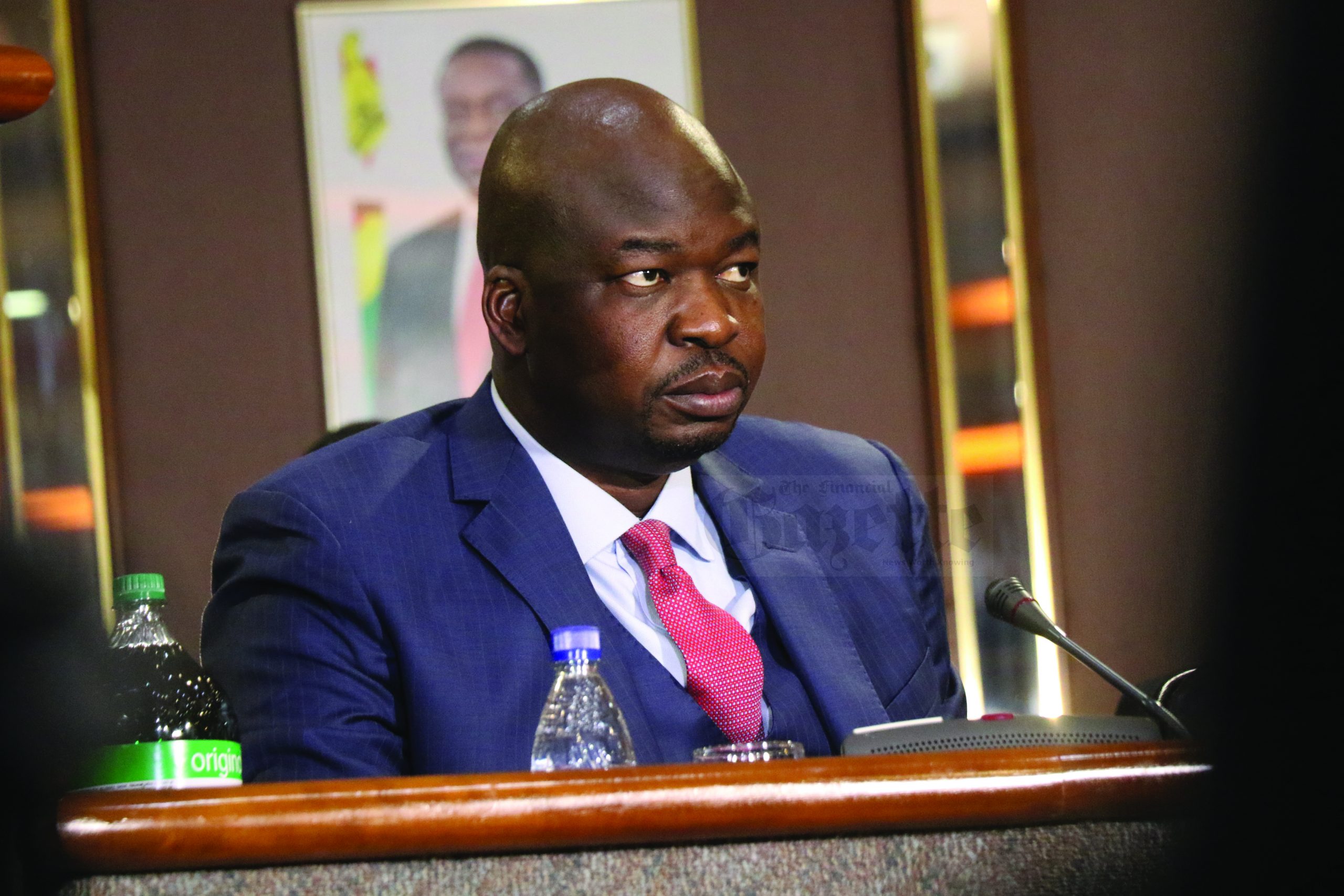By Forward Madyira
FINANCE secretary George Guvamatanga is a very colourful — and controversial man — from both an ideological, and social standing point of view.
And could the latest attacks on his person be linked to his recent threats on “Zimbabwe Gold abusers” and “unscrupulous investors” who are fleecing the country in many ways?
“We don’t want to take (disruptive) action, but we also don’t want the market to continue with the current practices,” Guvamatanga said at a recent breakfast meeting to address what many feel has been “some retailers’ parasitic tendencies and insistence on American dollar sales only”.
“The government might be left with no choice, but to take stronger and sterner action soon. We hope that these engagements will result in normalcy, stability and a sensible market, as there is no basis whatsoever for what we are seeing..,” he thundered.
At the same function, Guvamatanga also “called for stricter vetting of investors in order for the country to maximise its benefits”, as Harare has probably been signing up some dodgy, and unprincipled ones who were solely driven by self-gain.
But as if the 52-year-old bureaucrat was alone in chastising black market operators and other forms of indiscipline, Vice President Constantino Chiwenga and presidential affairs minister Lovemore Matuke have also railed against such malpractices and challenged Zimbabweans to defend the recently-launched currency.
But in this typically fractious, politically charged and polarised nation or community, the daggers — and focus — have just been drawn on Guvamatanga.
And as expected, the push back and bee stings from those wounded by the pugilist-like executive’s policies, including the minimisation of transit fuel-fraud loopholes, blacklisting of errant suppliers and other measures, has been swift, brutal, dirty and unkind — regardless of his nationalistic intentions, and role as one of the senior public servants charged with fixing this economy!
As it is, Guvamatanga has been on the receiving end, if not a barrage of blows, for allegedly building a property portfolio — across many global jurisdictions — through ill-gotten, opaque and dubious means, which he has vehemently denied.
Firstly, the ex-Barclays Bank chief has flagged his “lengthy and illustrious banking career” as the source of his money, and wealth, which has enabled him to acquire houses in Africa, Europe and other continents from as far back as 2003, finance a real estate development company for the past 20 years, and earnings from his multi-million dairy farming/cattle ranching enterprise to sustain his lavish lifestyle.
Secondly, his lawyers have told us that when Guvamatanga joined government in 2018, he declared nearly 40 properties in different locations worldwide — and in a laudable, and exemplary development by any civil servant, and something one wishes could easily be backed up by publicly available records or documents.
While we hold no brief for the under-fire permanent secretary, who has probably resigned to the fact that “criticism and often undue attention or scrutiny comes with the territory in his thankless job”, one gets a feeling that some of the brickbats and flak have really been unfair, and way below the belt!
Crucially, if the “public disclosures and asset declarations” could really prove that some of the properties were actually acquired decades before he joined government, this could actually add or bring another dimension, and context to the whole debate!
This could all arise from the fact that there is NOONE who “could so brazenly dip his fingers into the public purse” and then go on to declare the proceeds thereof to his superiors or higher authorities, with investigative and prosecutorial powers.
While the idea of this installment is not to profess or vouch for Guvamatanga’s innocence or lack thereof, one might be forgiven to conclude that his BEHAVIOUR — in this instance — is NOT CONSISTENT with a person with “skeletons or something to hide”.
In the wake of robust arguments by his lawyers that the properties were also acquired using “free funds from his Barclays plc earnings”, which is not a crime under Zimbabwean law, and coupled with the universal right to create generational wealth through investments in value-preserving assets such as real estate, the above points might actually drill holes into these frenzied debates and narratives about the treasury boss’ alleged misdeeds!
At any rate, these self-serving stories – if not hatchet jobs – are further weakened by the lack, if not deliberate omission, of dates in the “explosive exposes”, which inadvertently strengthen Guvamatanga and his supporters’ argument that the articles were “commissioned to malign, and mislead the Zimbabwean public” as well as anyone who cares to listen.
What Guvamatanga — a flamboyant businessman in his own right — might have to ACCEPT or CONTENT with is that: for as long as he continues to throw those heavy punches, zingers and radical views even in government, his adversaries will always hit back or retaliate even in malicious and untrue ways!
But overall, this malinformation chapter or incident also says something about the quality of our national discourse!
- Madyira is a British-based social commentator, who writes in his personal capacity









